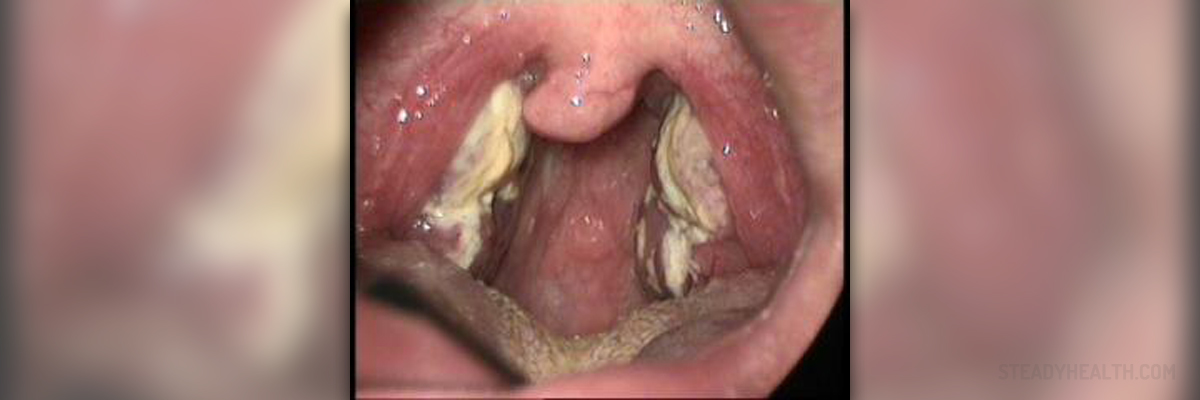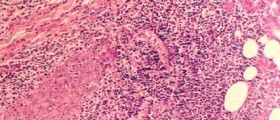
Glandular fever is another name for infective mononucleosis, an infection caused by Epstein Barr virus. Even though the condition may be very severe it usually does not cause serious complications and all patients fully recover.
What Causes Glandular Fever?
The virus is transmitted with saliva and mucus produced in the nose and the throat of the infected person. Patients suffering from glandular fever are most infective when the body temperature is increased. The infection can also be spread if one uses eating utensils that have been contaminated with the saliva of the infected person.
Epstein Barr virus affects the cells of the salivary glands and specific white blood cells called B-lymphocytes. The virus multiplies inside the salivary glands and this is why it is normally excreted with the saliva. Since the virus also affects B-lymphocytes the infection commonly features with enlargement of the regional lymph nodes.
Clinical Characteristics of Glandular Fever
The initial symptoms and signs of glandular fever resemble symptoms and signs of flu. Majority of patients complain about fever and severe fatigue. Furthermore, the throat is sore and there is evident swelling of the tonsils that may be covered with white coating. The person additionally complains about headache and muscle pain and sweats a lot. Lymph nodes of the neck, armpits and groins may be enlarged and can be palpated. In some people even the liver and/or spleen increase in size. Enlargement of these organs can cause abdominal pain. And finally, many patients develop specific rash predominantly on the trunk and limbs.
Complications of Glandular Fever
Spleen enlargement is one of potential symptoms of the disease and its rupture is considered one of the most serious complications of the infection. Ruptured spleen can lead to life-threatening internal bleeding and requires prompt surgery. This is why all patients with spleen enlargement must be thoroughly monitored. Patients who have had spleen enlargement during the infection are advised to abstain from any kind of physical activity for a certain time after the infection has subsided. This restriction allows the spleen to return to its original size and successfully prevents spleen rupture that may develop even after all the symptoms and signs of the infection are gone.
Treatment for Glandular Fever
The recovery time for glandular fever lasts approximately a couple of weeks. There is no specific treatment for the infection. Patients are only provided with symptomatic treatment.
It is essential to take plenty of fluids. Proper intake of water and other fluids prevents dehydration. Antibiotics are not recommended for glandular fever since this is viral infection and antibiotics act against bacteria. Pain, headache and fever are brought under control with paracetamol. Severe cases of infective mononucleosis require hospitalization.

















Your thoughts on this
Loading...